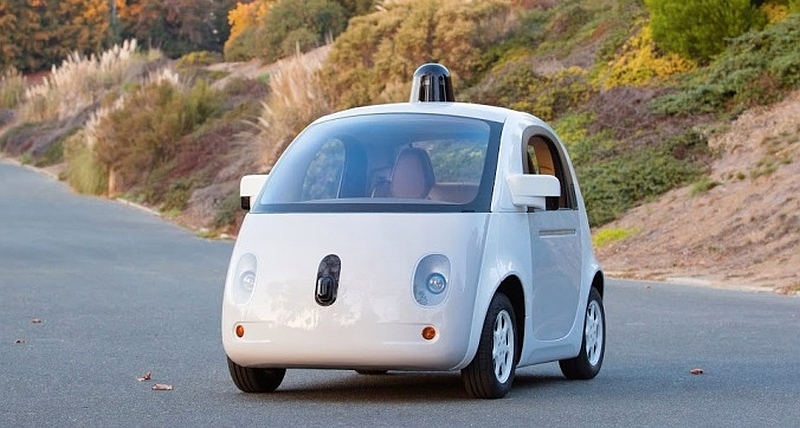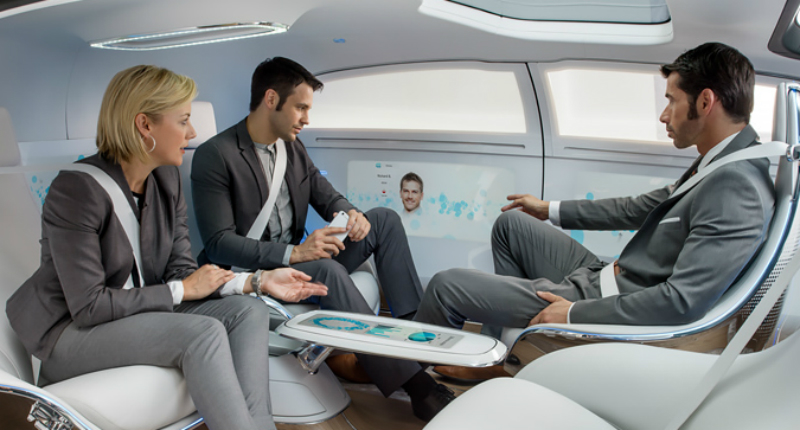With stablecoins gaining traction and regulation improving, African merchants may be nearing a crypto tipping point. Here’s why 2026 could mark a shift from hesitation to adoption.
Driving Change: how self-driving cars could revolutionise our world

Transportation is probably the most interesting industries to witness undergoing change. A century-old invention seems like it’s finally on the cusp of changing the way we go from point A to B. From the internet and GPS to 3D printing, Driving Change is a four-part series that covers the most powerful technologies moulding 21st century transport as we know it.
Self-driving cars are the talk of the day. From Google (latest model pictured above) to the German automakers, who’s making the most headway? How is this going to change the way we view ownership and insurance?
Back in 1939, industrial designer Norman Bel Geddes painted the science fiction future of self-driving cars at the New York World Fair. The American futurist envisioned that 20 years later, the world will start using autonomous vehicles.
Fast-forward 66 years, a team of Google and Stanford University engineers wins the 2005 DARPA Grand Challenge. Lead by engineer Sebastian Thrun, the team engineered a car to drive autonomously for over 212 km through the desert.
However ground-breaking this was, the desert reality is a lot different to our day-to-day driving landscape. Getting an autonomous car to pick up your kids from school, for instance, will have to wait a little bit longer.
But as Google, Audi, Mercedes-Benz and other forward-thinkers become ever more confident, the future of self-driving cars are just around the corner.
From insurance to property and less congestion on the roads, how could self-driving change our day-to-day lives?
The insurance industry is in for a bumpy ride
An estimated 90% of all accidents are as a result of human error. The insurance industry banks on this statistic. If self-driving can eliminate all human mistakes, insurance companies would be in for a bumpy ride.
Elon Musk, the futurist and billionaire entrepreneur, predicted that cruising around in a car would one day be illegal. People are unpredictable and take too many chances, whereas computers stick to the rules.
Read more: Driving change: How tech has unlocked the power of ride-sharing
The facts are on Musk’s side.
Earlier this month, Google reported on its self-driving cars safety. Of the 14 accidents that have happened in the last six years and over 3 million km of testing, 11 were rear-ended.
Of all the variants insurance schemes can base their premiums on, the car model and service history would be the two major factors determining your rates. But with so few accidents, premiums could become extremely low.
Insurance companies would also have access to your vehicle’s data. Time, location and frequency could all become factors in assessing risk. For instance, if you’re on the road 20% more than the average driver and commute through areas that are prone to human error or natural disasters, you’ll be charged more.
Furthermore, as pointed out by the Wall Street Journal, though, the more sophisticated cars become, the more expensive they’ll be to repair:
The automobile has been an omnipresent influence for decades, and the effects of taking the driver out of the equation could be just as far reaching. Insurers may sell fewer individual policies, or have to cover fewer accidents, but the more technologically advanced cars might be more costly to repair.
Read more: Why the difference between self-driving and autonomous vehicles really matters
So not only will the insurance industry be disrupted, the repair shops down the road will lose many of their clients as well. The ripples of having computers and the roads will be felt by nearly all industries.
Cars won’t need human babysitters anymore
Some of the world’s most cutting-edge advances in the field of artificial intelligence (AI) and machine learning come from the self-driving car industry. If you’re looking to prevent a Terminator-esque scenario panning out, the car industry would probably your best bet. Though this could lead to Stephen King’s Christine, but less supernatural.
Mike Hearn is a former Google software engineer and Bitcoin enthusiast. In this BBC article, he paints a future of self-owned, driverless cars as the most moral capitalists.
The software engineer explains that the decentralised nature of digital currencies such as Bitcoin, could enable autonomous cars to become more self-sufficient. Vehicles could carry wallets of their own as there would be no need for an intermediary such as a bank.
Driven to make profit, these machines could be programmed with the need to improve their hardware and software, as to be more competitive.
Self-driving taxi cars could even go on to travel to areas where they can better match supply and demand of that specific region. We might see cars from the developed world eventually migrate from to other countries where they can fulfil commuters needs.
The more independent cars become, the less ownership commuters need.
Ridesharing means less cars, more time
Today, cars sit unused an estimated 95% of the time. As with Uber’s philosophy, self-driving cars could be shared among the public, allocating resources more efficiently by optimising the supply and demand of rides.
This would be the ultimate form of ultimate collaborative consumption. People can even go as far as connecting all the cars together, forming a sort of hive mind for better cooperation.

“Traffic that’s about to run into a jam could be slowed down by these autonomous vehicles in a subtle way, perhaps maybe just two miles an hour under the speed limit, so that it’s not a big nuisance to the rest of the drivers. This could, for example, help dissipate stop-and-go waves in the traffic flow, and prevent prolonging the traffic jam ahead.”
While the numbers vary from city to city, it’s estimated that the average Joe in the UK spends between 30 and 80 hours a year wasting away in traffic. The total time and productivity lost going from A to B, is far worse.
 Driving Change is a series brought to you by Driverly — a service which aims to make driving smarter by connecting and rating driving instructors with learners. Founded by Chad Williams in 2015, Driverly aims to create a smart and structured learning experience for all learner drivers, presented by highly skilled, licensed and highly rated driving instructors.
Driving Change is a series brought to you by Driverly — a service which aims to make driving smarter by connecting and rating driving instructors with learners. Founded by Chad Williams in 2015, Driverly aims to create a smart and structured learning experience for all learner drivers, presented by highly skilled, licensed and highly rated driving instructors.


